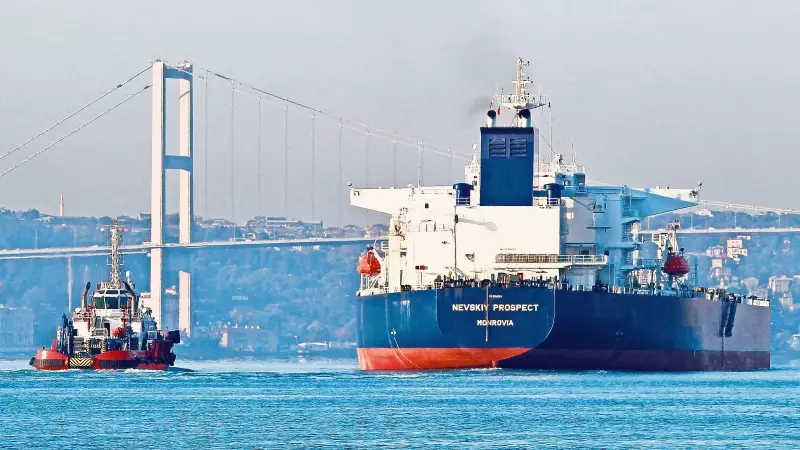
India's once-booming oil trade with Russia has hit a significant roadblock, with December 2023 witnessing a sharp 16% decline in imports as US sanctions begin to take their toll on payment mechanisms. The sudden drop marks a dramatic shift in what had become one of the world's most important energy relationships.
The Sanctions Squeeze
According to recent data from energy cargo tracker Vortexa, India's crude oil imports from Russia fell to 1.48 million barrels per day in December, down from 1.76 million barrels per day the previous month. This represents the lowest monthly volume since January 2023, signaling that Washington's tightening sanctions enforcement is finally disrupting the flow of cheap Russian oil to Indian shores.
Payment Problems Paralyze Trade
The primary culprit behind this decline appears to be growing complications in payment settlements. Indian refiners are facing increasing difficulties in settling payments in US dollars as US sanctions target financial institutions and shipping companies involved in Russian oil trade above the G7 price cap of $60 per barrel.
"The payment issues have become a major headache for both Indian buyers and Russian suppliers," explained an industry analyst familiar with the matter. "Banks are becoming increasingly cautious about processing transactions, even for crude purchased below the price cap, due to fears of secondary sanctions."
India's Strategic Shift to Alternatives
As Russian supplies dwindle, Indian refiners aren't sitting idle. They're actively diversifying their sourcing strategy:
- Increased Middle Eastern imports: Turning back to traditional suppliers like Saudi Arabia and Iraq
- Exploring African crude: Considering alternatives from Nigeria and Angola
- Domestic production boost: Potentially increasing domestic exploration activities
The Discount Dilemma
The changing dynamics raise important questions about the future of the lucrative discounts that made Russian crude so attractive to Indian buyers. While Russian Urals crude once offered discounts of $20-30 per barrel compared to international benchmarks, that gap has been narrowing in recent months.
"The golden era of massive Russian discounts might be coming to an end," noted an energy sector expert. "As transportation costs increase and payment risks grow, the economic advantage of Russian crude is diminishing significantly."
What Lies Ahead for India-Russia Energy Ties?
The December slump doesn't necessarily spell the end of India-Russia energy cooperation, but it does indicate a fundamental restructuring of their trade relationship. Both nations are exploring alternative payment mechanisms, including rupee-rouble arrangements and transactions through third countries.
However, with US officials maintaining pressure and global oil markets remaining volatile, Indian refiners are likely to continue their cautious approach toward Russian purchases in the coming months.






